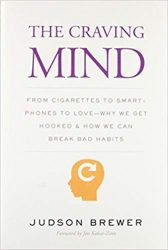A simple way to break a bad habit
Can we break bad habits by being more curious about them? Psychiatrist Judson Brewer studies the relationship between mindfulness and addiction — from smoking to overeating to all those other things we do even though we know they’re bad for us. Learn more about the ...
Can we break bad habits by being more curious about them? Psychiatrist Judson Brewer studies the relationship between mindfulness and addiction — from smoking to overeating to all those other things we do even though we know they’re bad for us. Learn more about the mechanism of habit development and discover a simple but profound tactic that might help you beat your next urge to smoke, snack or check a text while driving.
We are all vulnerable to craving. Whether it’s a compulsion to constantly check social media, binge eat, smoke, excessively drink, or any other behavior, we may find ourselves uncontrollably repeating. Why are bad habits so hard to overcome? In 2014 Time magazine declared a “mindful revolution” due to its growing popularity and growing body of research suggesting that mindfulness may help to treat a number of health-related problems from smoking to stress eating to anxiety. However, little is known about the underlying psychological mechanisms and related brain processes. Dr. Brewer will discuss recent evidence that helps to unravel these mysteries drawing from both clinical studies and brain imaging research, and how these insights might apply to our own lives.
In 2014 Time magazine declared a “mindful revolution” due to its growing popularity and growing body of research suggesting that mindfulness may help to treat a number of health-related problems from general stress eating to anxiety to addiction. However, little is known about the underlying psychological mechanisms and related brain processes. Dr. Brewer will discuss recent evidence that helps to unravel these mysteries drawing from both clinical studies and more basic neuroimaging research involving novice and experienced meditators, and how these insights might apply to our own lives.
